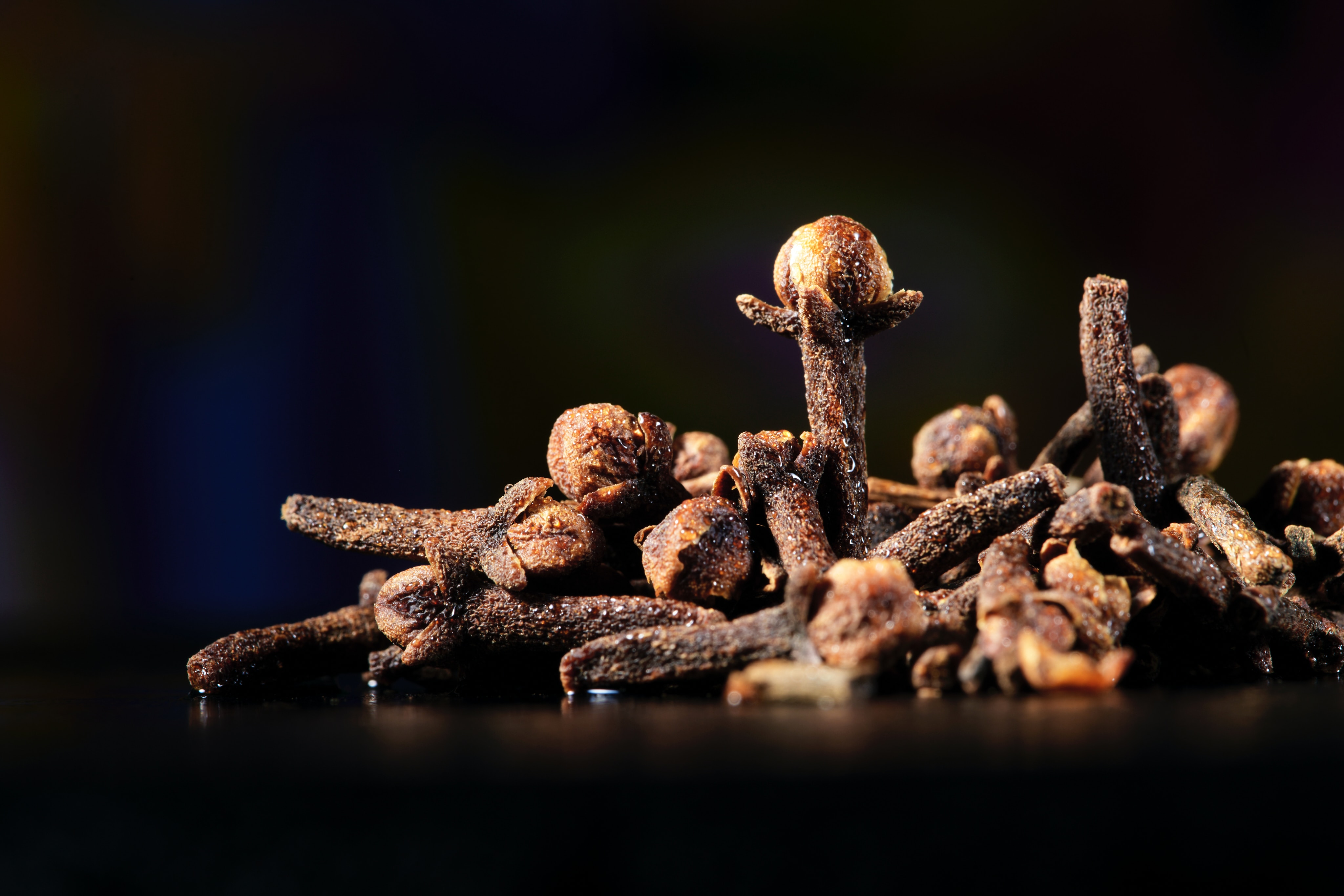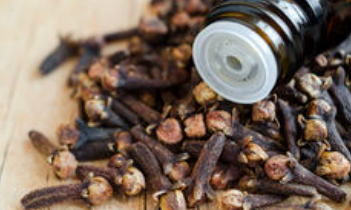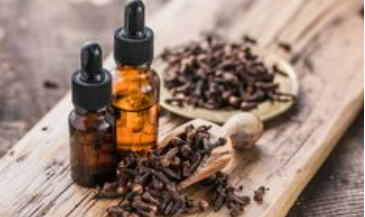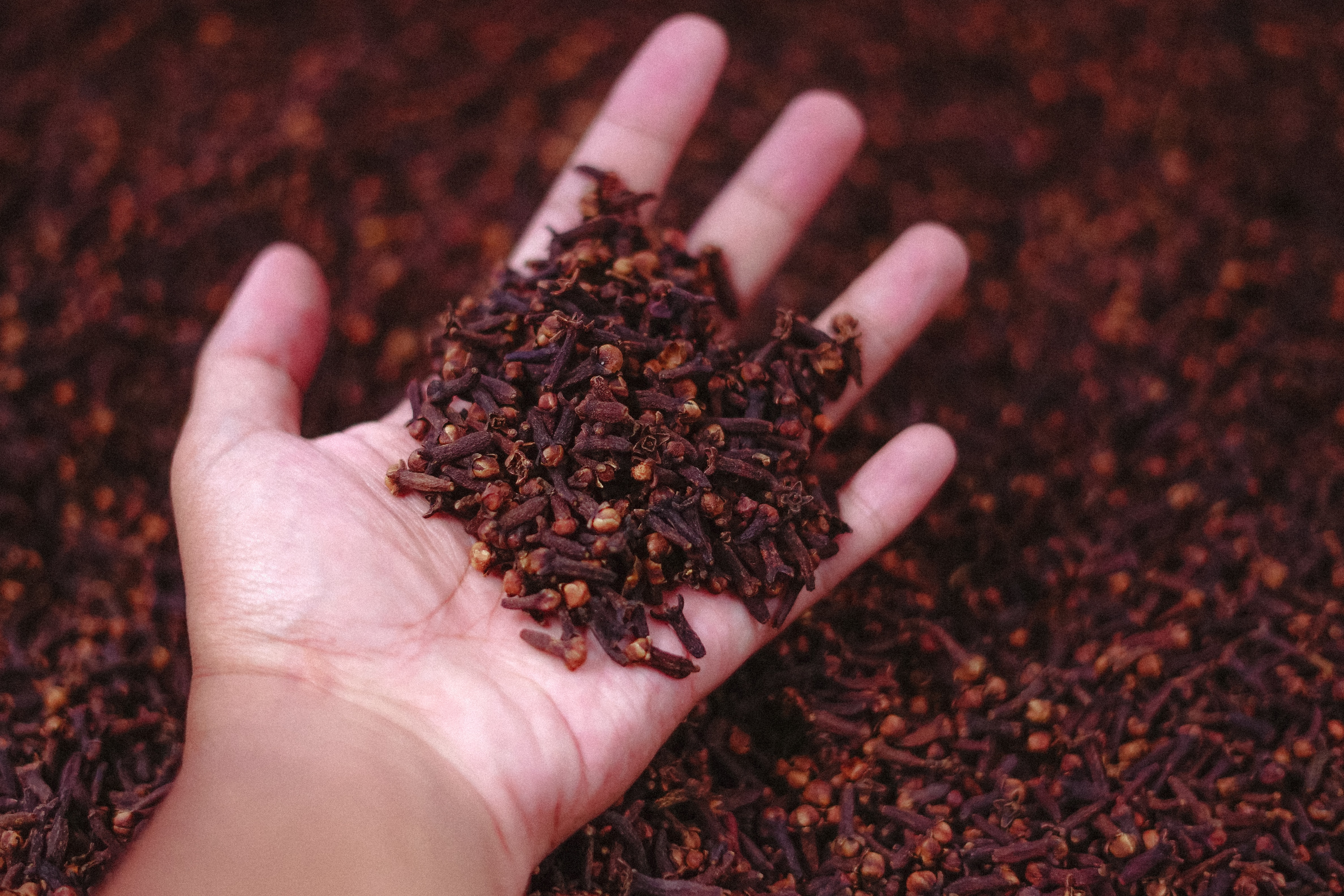Discover Clove Essential Oil

Clove essential oil is a potent and versatile oil that is widely used in traditional medicine, aromatherapy, and culinary applications. This oil is extracted from the buds of the clove tree, a tropical evergreen tree native to Indonesia, by steam distillation. Clove oil has a warm, spicy, and woody aroma, and it contains a variety of powerful chemical compounds that offer numerous health benefits.
Extraction Process of Clove Oil

Clove essential oil is extracted from the dried flower buds of the clove tree (Syzygium aromaticum) through a process called steam distillation. The process involves the use of steam to extract the volatile oils from the plant material without damaging the essential oil compounds.
The first step in the extraction process is the collection of the clove buds. Once harvested, the clove buds are left to dry until they reach the optimal moisture content. The dried clove buds are then crushed to break them down into smaller pieces, which are then placed into a steam distillation chamber.
Steam is introduced into the chamber, which heats the plant material and causes the essential oil compounds to vaporize. The vaporized essential oils are carried along with the steam into a condenser, where they are cooled and condensed back into a liquid form. The resulting liquid contains the essential oil and is separated from the water and non-volatile plant material.
The essential oil is then collected and filtered to remove any impurities or remaining plant material. The final product is a pure, highly concentrated essential oil that contains the aromatic compounds and beneficial properties of the clove plant.
The entire extraction process of clove essential oil takes several hours, and the yield of essential oil can vary depending on the quality and quantity of the plant material used. It is important to note that the extraction process should be carried out by experienced professionals to ensure the quality and purity of the final product.

Chemical Compounds In Clove Essential Oil
The main chemical compounds found in clove essential oil are eugenol, eugenyl acetate, caryophyllene, and beta-caryophyllene. Eugenol is the most abundant compound in clove oil, making up between 70-90% of the oil's composition. Eugenol is known for its antiseptic, anti-inflammatory, and analgesic properties, making it a popular ingredient in many oral health products, such as toothpaste and mouthwash. Eugenyl acetate is a minor component in clove oil, but it is known for its pleasant aroma and its ability to act as a natural insect repellent. Caryophyllene and beta-caryophyllene are sesquiterpenes that offer anti-inflammatory and pain-relieving benefits.
What Are The Health Benefits of Clove Essential Oil?
- Relieves pain and inflammation - Clove oil's high concentration of eugenol and caryophyllene make it a potent analgesic and anti-inflammatory agent. It can be used topically to relieve muscle and joint pain, as well as headaches and migraines.
- Improves oral health - Clove oil has been used for centuries in traditional medicine to treat dental pain, gum disease, and other oral health issues. Its antibacterial and antifungal properties make it an effective natural remedy for bad breath, tooth decay, and gingivitis.
- Boosts immunity - Clove oil is rich in antioxidants, which can help strengthen the immune system and protect the body against illness and disease. It also has antimicrobial properties, which make it effective against a wide range of bacteria and viruses.
- Improves digestion - Clove oil can help improve digestion by stimulating the production of digestive enzymes and reducing inflammation in the digestive tract. It is also a natural remedy for stomach ulcers, constipation, and other digestive disorders.
What are the best ways to use Clove Essential Oil?
Clove oil can be used in a variety of ways, including:
- Topically - Dilute a few drops of clove oil with a carrier oil, such as coconut or jojoba oil, and apply it to the skin to relieve pain and inflammation.
- Aromatically - Diffuse a few drops of clove oil in a diffuser or inhale it directly from the bottle to improve respiratory health and boost immunity.
- Orally - Clove oil can be added to food and beverages as a natural flavoring agent, or it can be taken in capsule form to support digestive health.
What does Clove Oil smell like?

The smell of clove essential oil is warm, spicy, and woody with a slightly floral undertone. It is a strong and potent aroma that is immediately recognizable and often associated with the holiday season. The scent of clove essential oil is commonly described as being similar to that of a mixture of cinnamon, nutmeg, and allspice, with a sweet and pungent aroma. Some people also describe the scent of clove essential oil as being slightly medicinal or herbaceous. Overall, the aroma of clove essential oil is complex and inviting, making it a popular choice in aromatherapy and perfumery.
What other essential oils does Clove Essential Oil blend well with?
Clove essential oil blends well with many other essential oils, including:
- Lemon essential oil: This combination creates a fresh and uplifting scent that is often used in cleaning and disinfecting products.
- Eucalyptus essential oil: When combined with clove oil, eucalyptus oil can help promote respiratory health and relieve congestion.
- Lavender essential oil: Clove oil and lavender oil create a calming and relaxing scent that can be used to ease tension and promote relaxation.
- Rosemary essential oil: This combination is often used to promote mental clarity and concentration.
- Bergamot essential oil: The combination of bergamot and clove oil creates a warm and spicy scent that can help alleviate stress and anxiety.
- Ylang ylang essential oil: When blended with clove oil, ylang ylang can help promote relaxation and uplift the mood.
- Peppermint essential oil: The combination of clove and peppermint oils creates a cooling and refreshing scent that can help relieve headaches and soothe sore muscles.
These are just a few examples of essential oils that blend well with clove oil. When blending essential oils, it is important to consider the therapeutic properties of each oil and to dilute them properly to avoid skin irritation or other adverse effects.

In conclusion, clove essential oil is a powerful and versatile oil that offers numerous health benefits. Its main chemical compounds, eugenol, eugenyl acetate, caryophyllene, and beta-caryophyllene, make it a potent analgesic, anti-inflammatory, and antimicrobial agent. Clove oil can be used topically, aromatically, or orally, making it a valuable addition to any natural health toolkit. As with any essential oil, it's important to use clove oil safely and appropriately by diluting it and consulting with a healthcare professional before use.


